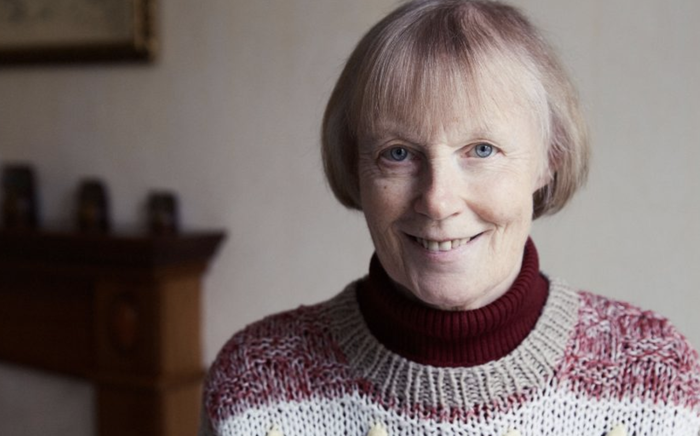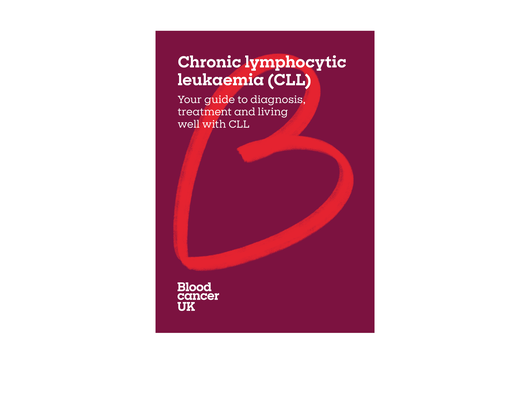Coming to terms with my watch and wait diagnosis
In 2003, Erica went to see her gynaecologist following a routine operation, and was told that she had chronic lymphocytic leukaemia (CLL). She's been on watch and wait ever since.

In 2003, Erica went to see her gynaecologist following a routine operation, and was told that she had chronic lymphocytic leukaemia (CLL). She's been on watch and wait ever since.
Back in 2003, I underwent a minor operation following an abnormal cervical smear test. Over the following weeks, I experienced night sweats, weight loss and felt very anxious and tearful. I felt really rough and had no energy – looking back, I was incredibly fatigued.
In the end, my gynaecologist ran some blood tests. When I went back for my results, he broke the news. “I’ve never had to tell anybody this before, but you’ve got chronic lymphocytic leukaemia,” he said. “I can’t do any more for you; you should go and see your GP”.
I can’t tell you how I got outside the door – it felt surreal. Due to the way in which my gynaecologist had delivered the news, I wrongly thought that if he could not do anything for me then my days were numbered.
My husband John was waiting for me outside; when I saw him, I just burst into tears.
Adjusting to life on watch and wait
Coincidently, my GP had just been on a haematology course; which was helpful but meant she didn’t refer me to a consultant straight away. Eventually, I saw the consultant, who arranged to see me once a year and for me to have quarterly blood tests and monitoring by my GP. If my symptoms worsened, I was told I could reduce the time between my appointments, or – if things got significantly worse – I could start treatment.
I didn’t ask any questions – partly because I didn’t know what to ask and partly because my mind went blank; the words ‘cancer’ and ‘watch and wait’ were not used. I had an early appointment and was going to head straight into work afterwards; instead, I went home and called my boss, saying, “I’ve got chronic lymphocytic leukaemia; I’m not coming in today”.
I’d been with my employer for 15 years and I’d never had a day off sick. I had quite a lot of responsibility at the time and I’d always been the strong one; the reliable one in the department. But when I was diagnosed, my bosses and I floundered. I didn’t know how to explain my needs, and they didn’t know how to help. I looked well, although I still felt rotten; if I had cancer, why was I not being treated?
For the next five years, I literally worked, did housework and slept. I had to give up being a part-time registrar of marriages, which I’d done since 1995, as I felt faint when travelling in the rush hour and performing marriage ceremonies.
Looking back, my senses were on high alert for years; I felt defined by my leukaemia. Since diagnosis, I’ve not dealt with anxiety or stress well, but I now know myself so much better. I’m now a lady who lunches and attends matinées!
I get emotionally drained easily and my fatigue usually sets in about 24 to 48 hours after I’ve overdone it – so there are certain situations I now try to avoid, like going out in the evening.
Diverting the mind
Although a lot of people on watch and wait are diagnosed through routine blood tests, and haven’t developed symptoms yet, a few of us already feel unwell at diagnosis – and while your condition’s being monitored, those symptoms don’t go away. It took me many years to learn how to manage mine, but I found Blood Cancer UK leaflets really helped by giving me practical information.
I find going to the gym and Pilates help a lot; at the moment, I do them up to four times a week. I also take a few other classes. One I love is Zumba – a fusion of different dance styles; it’s good exercise and great fun. I do these things because I enjoy them and if the CLL develops I want to be as fit as I can to fight it.
Music is my passion and helps too; it stops me obsessing about things. I still feel really anxious when I have blood tests or go for my appointments, but gradually over the past 14 years, I’ve realised that there are things I can do to divert my mind and stop myself obsessing.
I’ve also realised there are ways to give myself more control. I have a blue folder with all my medical information in, for example.
I make sure I’ve written down all the questions I want to ask before I attend medical appointments because otherwise, I know my mind will go blank.
A supportive community
Being part of the Blood Cancer UK Ambassadors scheme (the charity’s representatives) has also been really fantastic. It’s a real honour knowing that I’m giving something back, and the opportunities I’ve had – the events at the House of Commons, for example – have just been overwhelming. The sense of comradeship with Blood Cancer UK and the other ambassadors is wonderful too; it can be a struggle to keep up with all the messages on the Facebook group sometimes!
When I was diagnosed more than a decade ago, all I could see were the negatives; now I believe that I can see the positives – and there are plenty of them. I make the most of each day.
Everyone deals with watch and wait differently, but my advice to others is to just take it steady and be kind to yourself; and if you can get some fresh air and exercise – however little – it will definitely help.
Your guide to CLL
This free booklet covers:
- finding out you have CLL
- understanding CLL
- coping with watch and wait
- treatment options
- living well with CLL
- real stories of people living with CLL
You can order it for free from our online shop.

